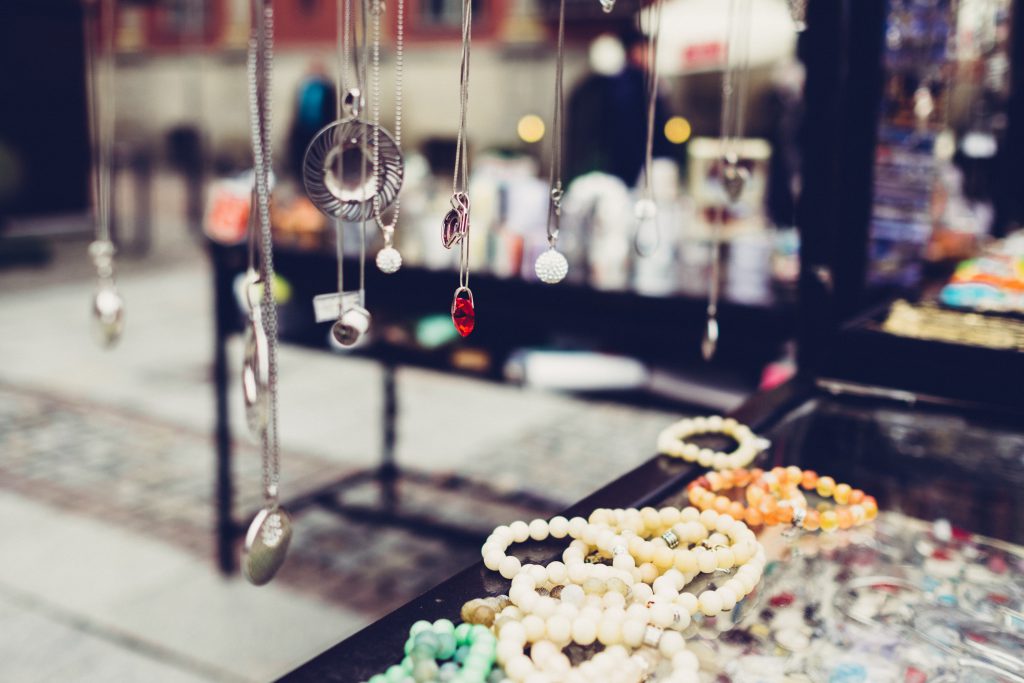Introduction:
The Vikings, renowned for their seafaring expeditions and fierce warriors, left a lasting impact on history. Among their many achievements, Viking jewelry stands out as a testament to their craftsmanship, artistic abilities, and social values. From intricate brooches and arm rings to exceptional necklaces and amulets, Viking jewelry not only served decorative purposes but also held immense symbolic significance. This article delves into the world of Viking jewelry, examining its history, craftsmanship, symbolic meaning, and enduring legacy.
 The Historical Context:
The Historical Context:
The Viking era, spanning from the late 8th to the 11th century, witnessed a flourishing culture that extended from Scandinavia across Europe and even reaching far-off lands like the Middle East. Jewelry played a crucial role in this society, serving not just as personal adornment but also as a means of displaying wealth, social status, and religious beliefs. Highly skilled Viking craftsmen utilized their imaginative designs and intricate techniques to create mesmerizing jewelry pieces.
Craftsmanship and Designs:
Viking jewelry encompassed a wide range of pieces, with each displaying its unique style and technique. The artisans primarily worked with materials such as gold, silver, bronze, and iron, often combining them to create stunning contrasts. Intricate filigree patterns, curvilinear motifs, and animal-inspired designs (such as snakes, ravens, and dragons) were commonly observed in Viking jewelry. The craftsmen mastered the art of granulation, twisting wires, and hammering metal into intricate forms to create eye-catching jewelry that reflected their artistic prowess.
Amulets and Talismans:
The Vikings believed in the power of amulets and talismans to ward off evil spirits, protect them in battles, and increase their fertility. As such, certain jewelry pieces held specific symbolic meanings. For instance, the Mjölnir pendant, shaped like Thor’s hammer, represented protection and strength. The Valknut, a symbol frequently depicted on necklaces or shields, conveyed the warrior’s prowess and invoked the guidance of Odin, the Allfather. Such amulets and talismans played a pivotal role in Viking society, not just on a personal level, but also in establishing cultural identity and values.
Brooches: A Fashion Statement:
Among the most iconic Viking jewelry pieces, brooches captured the essence of Viking society. Men and women both wore brooches, although their designs slightly varied. Women adorned themselves with intricately crafted oval brooches known as “Tortoise brooches,” often displayed on the shoulder or chest. These brooches held both practical and symbolic purposes, securing clothing and reflecting the woman’s social status. Meanwhile, men wore circular brooches known as “Oseberg brooches,” primarily used to fasten cloaks. These brooches not only showcased the wearer’s wealth but also held political and social significance.
Arm Rings: Networking and Status Display:
Arm rings held considerable importance in Viking society. These circular metal bands, often crafted from silver or gold, symbolized wealth, power, and social status. High-ranking warriors or chieftains typically wore multiple arm rings, while common folk might wear a single one. In addition to their symbolic value, arm rings also served as a form of currency and social networking, as they could be exchanged for goods or used as gifts to establish alliances and honor guests during feasts.
Legacy and Influence:
The Viking era may have passed, but the influence and legacy of their jewelry endure. Viking designs and craftsmanship continue to inspire contemporary jewelry makers, leading to a revival of Norse-inspired jewelry in recent years. The intricate patterns and symbolic motifs are not only fashionable but also serve as a link to the rich cultural history of the Vikings. Viking-inspired jewelry connects people to a bygone era, allowing wearers to embody the strength, bravery, and resilience of these legendary seafarers.
Conclusion:
Viking jewelry holds an undeniable allure that fascinates both enthusiasts of history and jewelry aficionados. From its meticulous craftsmanship to its symbolic significance, Viking jewelry offers a glimpse into the artistic talents, social dynamics, and cultural values of the Norse people. By exploring and appreciating Viking jewelry, we can better understand the profound impact these early medieval artisans had on the world of craftsmanship, and how their legacy continues to captivate and inspire us today.

